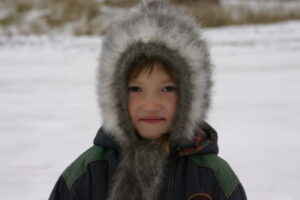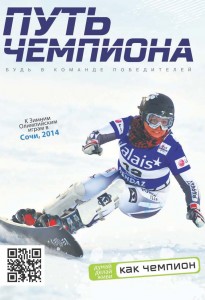When I first heard that the XXII Olympic Winter Games were going to be held in the city of Sochi, Russia, I was excited! We have made dear friends working alongside locals there distributing the Book of Hope since 1991. The more I thought about it, though, I found myself cringing in anticipation of how the media will likely portray a false Russia to its audience.
When you think of Russia, you probably envision Moscow—whose glitz and glitter rivals that of New York City. The upper crust—reeking of petrodollars and steeped in oligarchical traditions—was responsible for the largest percentage of Rolls Royce sales than any other city in the world in 2011. One native has said that in Moscow, if it were possible, “the streets would be gold, but outside Moscow, life is very different.”
Travel less than 100 miles outside the city, and you think you have somehow managed to travel back in time. People are living the same way today as they did a century ago. These peasants are nearly immune to the “economy crisis” because they have simply been living in crisis mode for as long as they and their ancestors can remember.
As Sochi prepares to launch a party for the world, the juxtaposition of this celebration against the backdrop of a dying nation is glaring.
 Reports and photos like this are beginning to surface of the Russia they prepared to display to the outside world. If this is what they will show you, just think of the Russia they don’t want anyone to see. For instance, the abject poverty that defines the rural areas of this nation. Just imagine the despondency that must be ingrained in a child born amidst these facts:
Reports and photos like this are beginning to surface of the Russia they prepared to display to the outside world. If this is what they will show you, just think of the Russia they don’t want anyone to see. For instance, the abject poverty that defines the rural areas of this nation. Just imagine the despondency that must be ingrained in a child born amidst these facts:
- The already high 5.6% unemployment rate has been steadily increasing since last summer with some areas experiencing unemployment rates nearly double that number.
- Alcoholism runs rampant. Russia is classified by the World Health Association as having one of the “riskiest patterns of drinking.”[1]
- Many children are born with fetal alcohol syndrome, and alcohol accounts for more than half of all Russian deaths aged 15-54.
- An average lifespan is in the mid-fifties.
- If you ask a young girl what she aspires to in life, the third most frequently heard answer would be “prostitution,” as she will do anything in hopes of being able to change her miserable reality to the “glitz” of the city.
While the physical needs of trying to thrive in such adverse conditions are many, the spiritual need for bringing the hope of the Gospel, to those living what might seem like a pointless existence, is vacuous.
It’s hard for us to comprehend the damage that living in these conditions does to the state of the heart of Russian inhabitants. We live in the seen, the finite, and the temporal. But every day, God sees the suffering these people experience without Him. After Beslan happened, God showed me this suffering[2]. He not only increased my awareness of the plight of the Russian people, but He made a way for us to help.
OneHope has partnered with local pastor Edward Grabovenko, Union of Evangelical Pentecostal Churches of Russia, who is propelling a vision to plant 10,000 churches in Russian villages by the year 2020. It’s called the Hosanna Plan. We supply the Book of Hope, a critical component to this evangelism outreach, but Pastor Edward and his teams supply the heart.

The Hosanna Plan is made up of teams of self-supported people who volunteer one year of their lives to spread the Good News of Jesus in Russia. Their commitment is nothing short of a sacrifice as they work in extremely formidable conditions, often living on a bus with no running water and eating whatever is available in their region as they plant seeds of hope in a hopeless place. I wish I could tell you the extreme joy and excitement that takes place when one of the Hosanna Plan buses rolls into a city: it might very well be the first experience of joy ever for these forlorn kids.
When the Iron Curtain came down in the 90’s, the Church blitzed the country with teams to distribute literature in cities. And then most Western ministries left, and there were few to no churches there to follow up and connect with new converts for continued discipleship and growth.
Thankfully, Pastor Edward’s church in Russia has responded to the call not only to harvest the seeds planted in the 90’s, but also to begin reaching tens of thousands of villages previously untouched by the Gospel. They can’t do it alone—they still need us to walk alongside them and aid their efforts.
This winter, as you watch the Olympics, remember the forgotten people of Russia. Over time, Russia has fallen off the radar. It’s not as attractive to give to a nation that is no longer experiencing the immediate adversity of communism. This country has quietly crept into the category of “forgotten,” with many corners of its vast geography untouched and unreached.
Whether the media decides to focus the lens on the more glamorous city of Moscow, the pop-up Winter Olympics village in Sochi, or if they attempt to cull heart-wrenching stories of downtrodden locals, I am just thankful that the Games will offer an opportunity to spotlight this needy nation. Maybe this is God’s way of helping the global Church remember the forgotten Russia.
 OneHope has seized this Olympic-sized opportunity to spread hope around the theme of the Games. Read more about our plans here!
OneHope has seized this Olympic-sized opportunity to spread hope around the theme of the Games. Read more about our plans here!



